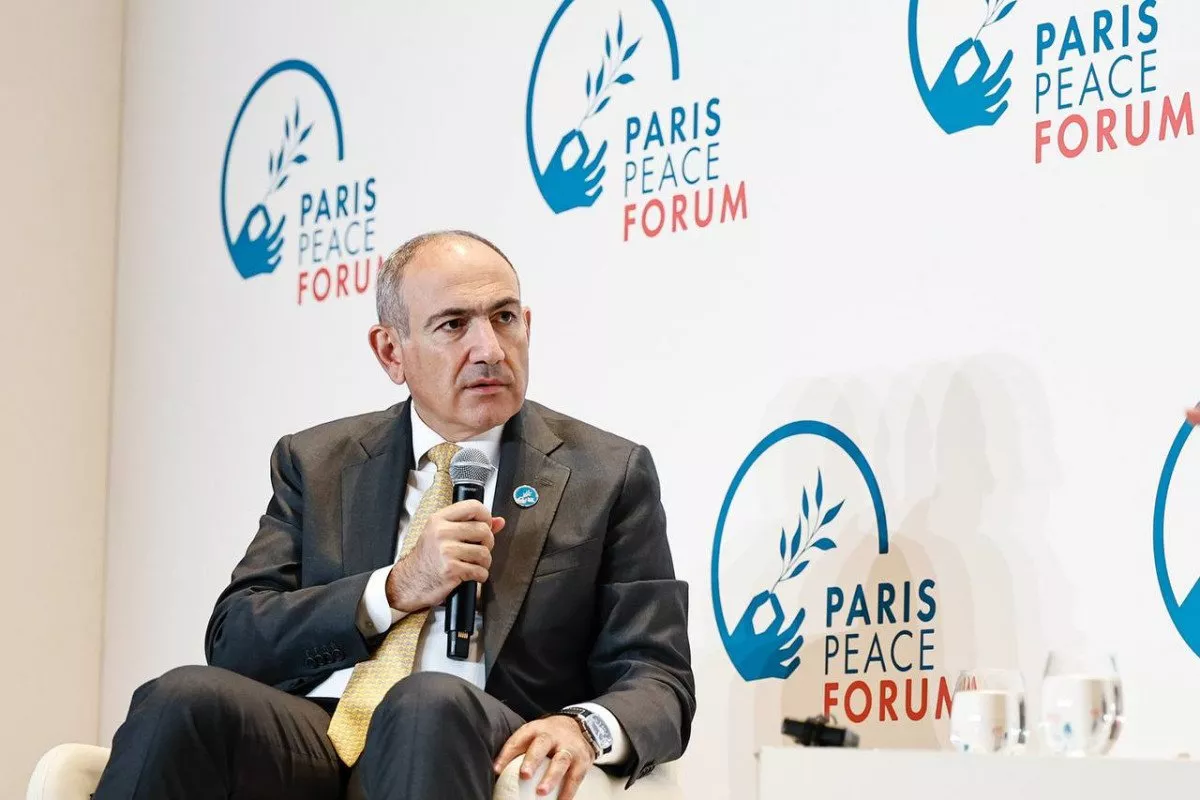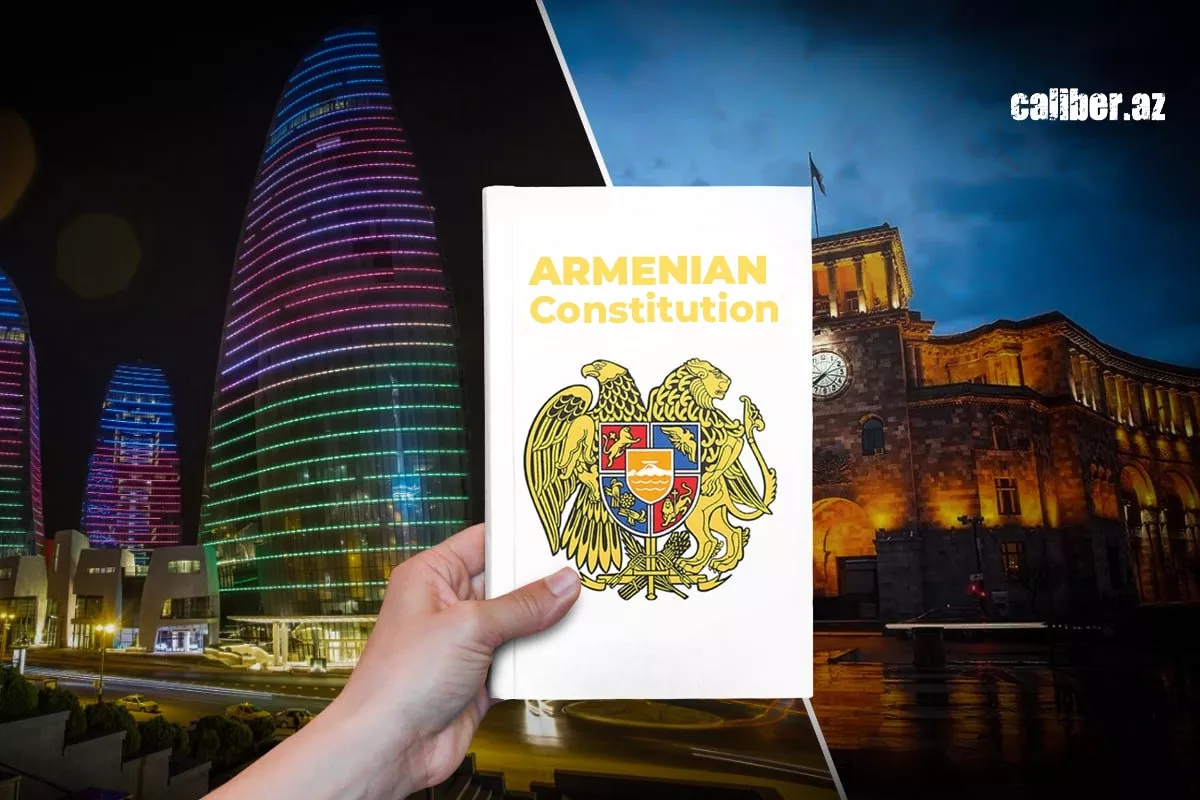The dilemma of the Pashinyan government Peace with Azerbaijan vs. constitutional amendments
Following the historic August meeting in Washington, the peace process between Armenia and Azerbaijan, so to speak, has reached the home stretch. For the final establishment of peace in the South Caucasus, Yerevan must take one of the last steps—fulfil Baku’s main requirement and amend the Armenian constitution to remove territorial claims against the country. However, there appears to be some divergence of opinion on this issue within Armenia’s political landscape, as evidenced by statements from Prime Minister Pashinyan.
During discussions at “Leadership at the Crossroads” as part of the 8th Paris Peace Forum, the Armenian leader presented his view regarding amendments to Armenia’s Constitution, referring to a ruling by the Constitutional Court (CC), which stated that the Armenian constitution does not contain territorial claims against any country.
“Azerbaijan is raising this issue, but the situation is as follows: in 2024, the Constitutional Court of Armenia made a decision, which is the highest-level legal ruling, that the Constitution of Armenia does not contain any territorial claims against any of its neighbours,” the Armenian leader stated.
He then presented the following argument: “In the peace agreement, which has already been initialled, all apparent issues are addressed, meaning there is no such problem in our case. Therefore, even if there might be some assumptions or claims, the peace agreement covers all matters. To close and resolve all these issues, we need to sign and ratify the agreement, and after that, it will acquire the highest legal force, leaving no room for other interpretations.”
In other words, the Armenian leader hinted that a peace treaty between Azerbaijan and Armenia could be signed without amending Armenia’s constitution. Such an approach by the prime minister clearly contradicts Baku’s position and rules out the possibility of concluding a peace agreement between the two countries in the foreseeable future. This is the first aspect.

The second point is that Nikol Pashinyan once again contradicts himself, since back in August of this year—after the agreements reached in Washington—he made statements of a completely different nature while speaking to journalists. At that time, the Armenian prime minister said that the necessary amendments to Armenia’s constitution would be introduced regardless of the decision of the Constitutional Court of the Republic of Armenia.
“If, during the ratification process, our Constitutional Court decides that the peace agreement with Azerbaijan, which has now been initialled and may later be signed, contradicts the constitution, I will personally initiate the constitutional amendments,” he assured.
The prime minister expressed a similar position following the provocative remarks made by Constitutional Court Chairman Arman Dilanyan in an interview with Radio Liberty. Dilanyan had claimed that Armenia’s Basic Law allegedly contains no territorial claims not only against Azerbaijan but against any other country, and even called Baku’s accusations “false.”
In response, Nikol Pashinyan made it clear that when it comes to making a final decision on amending the country’s Basic Law, the ultimate and sole authority would not be the Constitutional Court, but he himself. The prime minister reaffirmed this stance in May this year at the international Yerevan Dialogue forum.
“According to Armenia’s legislation, the treaty must receive a ruling from the Constitutional Court. If the Court decides that the text does not comply with the Constitution—although I must say that, following the previous decision on the regulations of the Armenian-Azerbaijani commissions on border demarcation and delimitation, it is unlikely to make such a ruling—an unusual situation would arise. What would be Armenia’s position, and mine? I would initiate constitutional reforms, because the peace process and the treaty cannot be missed,” he said, recalling that “amending the constitution is one of the two issues that Azerbaijan links to the signing of the peace agreement.”
From all the above, combined with Pashinyan’s statements concerning the Armenian constitution made during the “Leadership at the Crossroads” discussion at the 8th Paris Peace Forum, several conclusions can be drawn.
First, it is evident that this remains the most sensitive issue currently on the agenda of the neighbouring republic. It is quite likely that the authorities are wary of making clear public statements regarding amendments to Armenia’s constitution.

As a result, in recent times, representatives of Pashinyan’s team have been making statements that raise questions and contradict the regional agenda. For example, in mid-October, Armenian Foreign Minister Ararat Mirzoyan, in an interview with Deutsche Welle, when asked about the obstacles to signing a peace treaty between Baku and Yerevan, said that Armenia’s Constitution contains nothing indicating territorial claims against Azerbaijan, adding that the problem referred to by the Azerbaijani side simply does not exist.
“The Azerbaijan side sees and brings this condition. We don't agree on this condition. But as I said, we have been speaking about amending or adopting a new constitution in Armenia since 2018, I believe. So it is on our agenda,” Mirzoyan said.
Secondly, it is quite possible that through such statements, the Armenian authorities are trying to encourage the population to participate in the upcoming parliamentary elections and constitutional referendum actively. For instance, during his speech in Paris, Pashinyan expressed confidence that the people of Armenia would support the policy of the current government in the context of the forthcoming elections.
“I am convinced that the citizens of the Republic of Armenia will support our achievements. Of course, there are various concerns—you know the problems that exist worldwide related to disinformation, etc. Like any democratic country, we feel this as well and are working to address it. But overall, I have no doubt that the people of Armenia support the peace agenda, the peace process, and the establishment of peace, and they will certainly back it,” the Armenian leader stated.
It can be inferred that the prime minister was referring to public support in the upcoming constitutional referendum and parliamentary elections, and that his statements regarding the Armenian constitution, made in Paris, were aimed at drawing the attention of a segment of society opposed to normalising relations with Azerbaijan.
Thus, it is quite possible that the Armenian authorities are using this approach to maintain domestic political balance, avoid provoking another wave of tension, prevent new protests, and carry out the elections and referendum in an atmosphere of stability in order to achieve their stated objectives.








